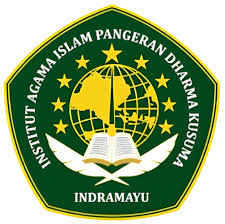Peranan Akhlaq Islami dalam Pembentukan Legislasi yang Berkeadilan
Akhlaq Islami dan Legislasi Berkeadilan
DOI:
https://doi.org/10.55656/tjmes.v6i1.247Keywords:
Islamic Ethics, Legislation, Justice, Culture, and SocialAbstract
This research delves into the crucial role of Islamic morals (Akhlaq Islami) in the legislative process aimed at creating justice in society. The concept of Akhlaq Islami serves as a moral foundation that guides the creation of fair and inclusive laws. This study highlights the importance of values such as honesty, justice, and empathy in the legislative process. By analyzing the cultural and social context of Indonesia, this research identifies how Islamic moral values are reflected in the national legal framework. The study illustrates that the role of Akhlaq Islami in forming just legislation has a significant impact both in the context of Indonesia and globally. Various findings and analyses show that Islamic moral values, such as justice, equality, and humanity, have a strong influence on the policymaking and legislative process. However, the implementation of Akhlaq Islami values still faces several challenges, including discrepancies between Islamic moral principles and the complex political and social realities.
Keywords: Islamic Ethics, Legislation, Justice, Culture, and Social
References
Ahmad, K., & Ogunsola, O. (2011). An Empirical Assessment of Islamic Leadership Principles. International Journal of Commerce and Management, 21(3), 239–253.
Al-Qardhawi, Y. (2002). Etika Bisnis dalam Islam. Jakarta: Gema Insani Press.
Chapra, M. U. (2000). The Future of Economics: An Islamic Perspective. Leicester: The Islamic Foundation.
International Conference on Islamic Economics and Finance. (2019). Integrating Akhlaq in Business Practices. International Conference on Islamic Economics and Finance.
Islamic Finance Forum. (2020). Ethics and Akhlaq in Islamic Finance. Islamic Finance Forum.
J. Moleong, L. (2013). Metodologi Penelitian Kualitatif. Bandung: Rosdakarya.
Johnson, R. (2016). Religion and Public Policy: A Comparative Analysis. Journal of Public Administration Research and Theory, 25 (1), 65–82.
Jones, M. (2018). The Role of Ethics in Policy Making: A Comparative Analysis. Policy Studies Journal, 35 (2), 145–162.
Leavy, Patricia (ed.). (2020). The Oxford Handbook of Qualitative Research (2nd edn). Oxford Handbooks. https://doi.org/10.1093/oxfordhb/9780190847388.001.0001
Liu, Q. (2019). Opportunities for Implementing Moral Values in Public Policy: Insights from Global Practices. Public Administration Review, 42 (4), 451–468.
Martinez, C. (2017). Understanding Justice: Comparative Insights from Legal Systems. Comparative Law Review, 20 (4), 421–438.
Park, J. (2020). Religion, Law, and Policy: Insights from Global Practices. International Journal of Law and Policy, 38 (1), 78–95.
Sumarta, Burhandin, & Budiyanto, T. (2024). Maqasid Al-Syariah Mendorong Keadilan Dan Keseimbangan Dalam Hukum Islam. Khulasah: Islamic Studies Journal, Vol. 6 No. 1.
Suryani, E. (2017). Integrasi Akhlaq dalam Praktik Bisnis Islami: Studi Kasus di Pasar Tradisional. Tesis, Universitas Islam Negeri Syarif Hidayatullah Jakarta.








